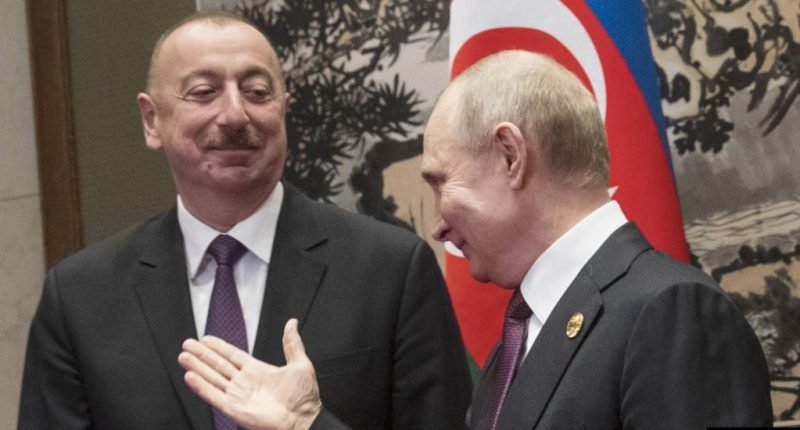Baku — August 12 — Azerbaijan’s no-show at the latest Council of CIS Interior Ministers in St. Petersburg marks yet another visible sign of cooling ties with Russia, following weeks of diplomatic friction, mass detentions of Azerbaijani citizens in Russia — and even a deadly incident involving the country’s flag carrier.
According to the CIS Executive Committee, delegations from Armenia, Belarus, Kazakhstan, Kyrgyzstan, Russia, Tajikistan, Turkmenistan, and Uzbekistan were present. But the Azerbaijani delegation — led in past years by Interior Minister Vilayat Eyvazov — was absent. Baku has given no official explanation for the decision, though local reports noted the absence without elaborating.
The meeting’s agenda, ostensibly focused on combating organized crime, illegal migration, and enhancing law enforcement cooperation, was overshadowed by the political undercurrents. Azerbaijan’s empty seat is widely interpreted by regional observers as a quiet but deliberate signal to Moscow.
From Arrests to Airspace Tragedy
Relations began to strain sharply on June 27, when Russian authorities detained 50 Azerbaijani nationals in Yekaterinburg, accusing them of various crimes. Baku protested, warning against mass detentions based on ethnicity. Kremlin spokesperson Dmitry Peskov later admitted ties had become “complicated” but voiced hope for improvement.
Tensions escalated further in early July, when a passenger aircraft belonging to Azerbaijan Airlines (AZAL) was shot down by Russian forces near the border zone under unclear circumstances, killing all on board. Moscow has maintained it was a “tragic mistake,” citing an alleged misidentification in a high-alert military zone. In Baku, the explanation was met with outrage, with officials insisting on a full and transparent investigation — something Moscow has yet to deliver.
The incident not only shocked Azerbaijan’s public but also touched a raw nerve in the political establishment. For a nation priding itself on sovereignty and safety, the downing of a civilian airliner by a nominal partner was more than a tragedy — it was seen as an unacceptable breach of trust.
A Broader Strategic Shift
This sequence of events comes at a time when Azerbaijan is deepening ties with the United States and the European Union, capitalizing on its growing role as a reliable energy supplier to Europe. The recent Washington peace summit between Azerbaijani President Ilham Aliyev, Armenian Prime Minister Nikol Pashinyan, and U.S. President Donald Trump not only advanced the long-sought peace treaty between Baku and Yerevan but also underscored Washington’s rising influence in the South Caucasus — at the expense of Moscow’s.
For Russia, accustomed to dominating post-Soviet security and political architecture, Azerbaijan’s pivot westward is unwelcome. But its own actions — from heavy-handed law enforcement against Azerbaijani citizens, to military overreach in the air — have only widened the rift.
Signals That Can’t Be Ignored
Skipping the CIS Interior Ministers’ meeting may appear procedural, but in the coded language of regional diplomacy, it is a pointed gesture. By not showing up, Baku is making clear it will not engage in business-as-usual while such grievances remain unresolved.
Whether this is the start of a longer-term political distancing from Moscow or a temporary freeze will depend on how Russia handles the outstanding crises — particularly the investigation into the AZAL incident. For now, both capitals seem locked in a wary, watchful posture, aware that any next move could define the trajectory of their relationship for years to come.


